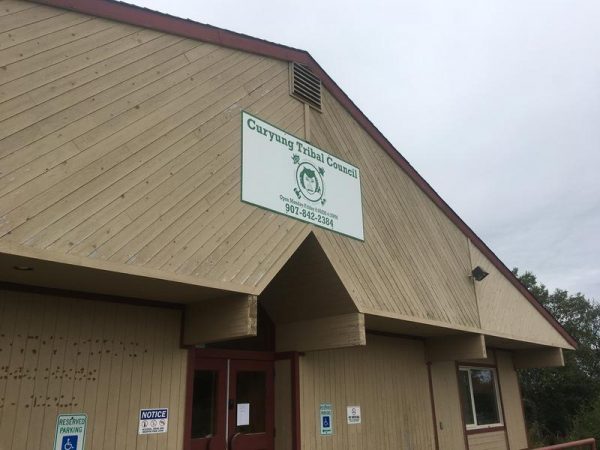
Millions of dollars in CARES Act funding is flowing into the Yukon-Kuskokwim Delta’s villages. But the funds come with the requirement that they be used in response to the COVID-19 pandemic, or else they’ll have to be paid back. There’s some disagreement between tribes on what is an allowable expense.
Read more coverage of how the coronavirus is affecting rural Alaska
Many villages are allocating a portion of their CARES Act funding for medical supplies like masks, suits, and hand sanitizer. Some are buying portable quarantine facilities and outfitting them with beds. These purchases clearly fit the U.S. Department of Treasury’s criteria as “necessary expenditures incurred due to the COVID-19 public health emergency.”
Some villages are getting creative with that requirement. Kipnuk is one of a few communities hiring extra village police officers and COVID-19 Task Force members.
“To make sure that these restrictions, quarantine restrictions and travel restrictions, are being enforced,” said Tribal Administrator Nick Slim.
If you arrive in Kipnuk from Anchorage or further, you must quarantine for 14 days. Now, the village has staff to enforce that rule. Slim says that VPOs or task force members meet inbound passengers at the airport to remind them of the rules. They also patrol the village to make sure that masks are being worn in public, and that people are following their quarantine.
Many villages are also using CARES Act money to keep the lights on in tribal members’ homes, buy stove oil, and pay water and sewer bills. The U.S. Department of Treasury’s website says that utility fees are allowable expenses as long as tribes determine that the recipients were economically impacted by the pandemic.
Some villages are going further, writing checks for tribal members to spend however they want. Scammon Bay Tribal Administrator Ekam Sundown says that they’re calling their program “Special Needs COVID-19 Assistance.”
“Each tribal members that are enrolled in our tribe, they’re eligible for the funding,” Sundown said.
Sundown says that Scammon Bay received about $1.8 million from the U.S. Treasury, and the tribe is spending a portion of that on Special Needs COVID-19 Assistance checks. He says that each of the 973 tribal members could receive a check for $436.
Some villages are choosing not to write checks. Administrators in those communities, who asked to remain anonymous, said that some of their tribal members are jealous and angry as a result. The administrators said that the issue is once they write someone a check, they have no control over how the money is spent. A number of villages, including Bethel’s ONC, believe that they would not be able to defend checks in an audit, unless they know how the money was used.
“We have to be able to document these expenditures, and so does everybody else,” said ONC Executive Director Mark Springer. “So any other tribes that sort of sent out checks, they have to be able to be audited on those expenditures.”
Sundown says that Scammon Bay will be able to show the checks were a necessary expense because they will only go to families that need it.
“There’s an income guideline that we follow.” Sundown said. “If we happen to get audited, we will have a paper trail, and we will have each individual’s income to show if they qualify or not.”
The Association of Village Council Presidents, which has been assisting tribes with navigating CARES Act Funding in Y-K Delta-wide teleconferences, agrees with Sundown. AVCP points to the Department of Treasury’s website, which states that financial assistance programs are allowed as long as there is an assessment of individual need. It also says that the assistance must be necessary due to the COVID-19 pandemic.
In Bethel, ONC Executive Director Mark Springer says that $3 million of its $14 million in CARES Act Funding will go towards “tribal member emergency assistance,” but not in the form of checks.
“We are trying to do as much of this through vendor payments as possible,” Springer said.
He says that tribal members could apply to get their homes repaired or to receive assistance if they’ve been laid off, but he says that ONC will take precautions to make sure it doesn’t have to pay back the funds in an audit.
“It has to be based on COVID-19 related impacts,” Springer emphasized.
Springer says that ONC would have an application for the emergency assistance on its website soon, adding that tribal members who live outside of Bethel would also be eligible.
The remainder of ONC’s $14 million will go towards supporting members who can’t afford utilities, and paying for health care expenses like medical supplies. ONC will also use the funds for Elder services, and to provide food security during the pandemic. Some of the money will also pay for advertising campaigns to encourage people to follow health recommendations, like getting tested at the airport.
Tribes may not have long to spend this money. Sen. Lisa Murkowski has introduced legislation to extend the deadline for spending the CARES Act funding, but as of now, villages must use it by Dec. 30 or pay back what’s left.




